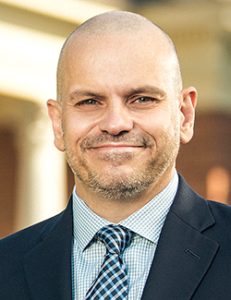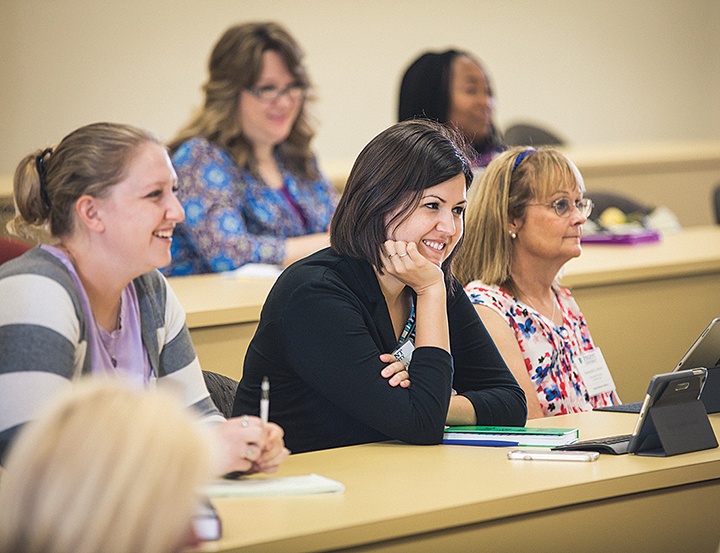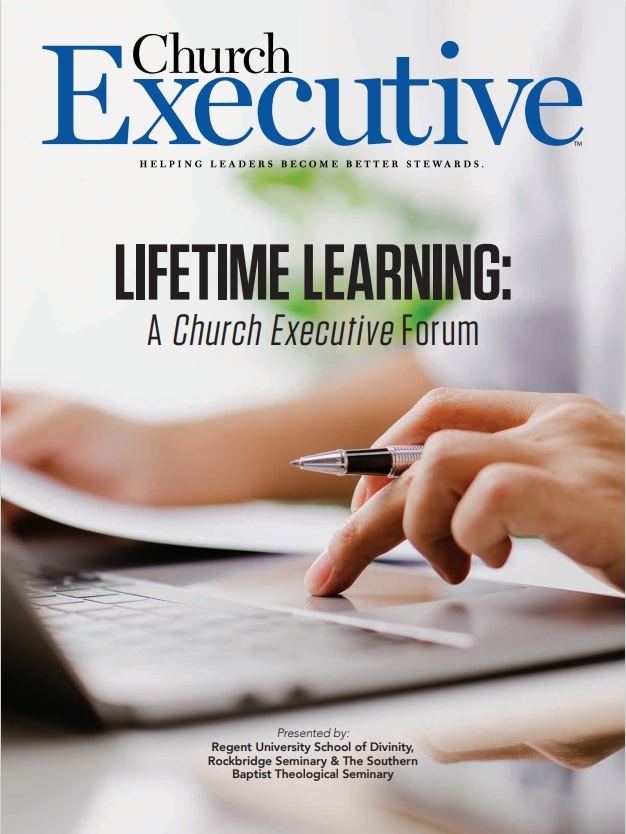
 Right now, our School of Divinity at Regent University is seeing incredible growth among full-time ministry leaders, pastors, counselors, workers, and missionaries coming back to seminary for further education.
Right now, our School of Divinity at Regent University is seeing incredible growth among full-time ministry leaders, pastors, counselors, workers, and missionaries coming back to seminary for further education.
It’s because our world is complex and changing fast — and, because ministers are discipled scribes leading their flocks into truth in such a world, they understand that they must be lifelong learners.

Dean & Professor
Regent University School of Divinity
In particular, we find that full-time ministers are pursuing Renewal Theology, one of our distinctives here at The Regent University School of Divinity. The No. 1 focus, here, is on church revitalization and renewal.
So many ministers who come to us have been in ministry for decades. Their churches are under stress: they’ve lost traction, they’re losing people. They come to us to learn, firstly, to be renewed, themselves. Second, they seek to revitalize their churches, their ministries, and their people.
The second area of great interest is Christian Theology, which is very exciting for us. Students who come to us in this respect recognize that the world is causing great conflict for believers. They need strengthening in what the truth is. They come to us to be rooted in biblical, historic, faithful, Christian theology so that they can go forth and equip the next generation.
Keeping it personal, even (and especially) online
Importantly, all this enrichment is extremely accessible because our seminary holds innovation as one of its primary values. We were very early adopters of online education and have witnessed monumental growth in this space. In fact, among all the students registered for our Fall 2022 masters and doctoral programs, 89 percent are online.
I say this: distance or online education is not foreign to Christianity. It’s the DNA of what we do.
Apart from Christ, the person with the greatest influence on me is Paul the Apostle — but I’ve never met him. Yet, by engaging and reading his work, I have been shaped by his thought.
Online education uses so many different modalities and opportunities to connect with students. The students who come to us today are digital natives; they are used to immediate feedback. The online education we offer provides students with even more contact than one would get in an on-campus program.

For example, a number of years ago, I had an online student who was living in Canada. On the day of graduation, he came to meet with me.
“How’s your grandmother doing? I know she’s been struggling with her health,” I asked. “And how are your children and your church doing?”
We had a 20-minute conversation before he said, “You know, we’ve never met in person.”

I couldn’t believe it! Indeed, all our interaction had been online, through video conversations, voicemails and interactive platforms. Yet, it was so robust, so immediate.
I believe the key to contemporary education — actually, the key to all formation, and especially theological formation — is presence. Online education gives us an extraordinary ability to be present in greater ways than we can in an hour-long or two-hour class per week.
In online education, every voice is heard. There’s an equal platform for students to speak up, to be heard, and to interact and to receive feedback. We have courses where, at the beginning, every student gets a personal phone call from a faculty member. After that, there is weekly interaction. Along the way, if a student asks a question, we jump online.
Take today, for instance: it’s 2 o’clock on a Wednesday, and I’ve already met with eight students via Zoom. The fact that I can see them — hear their voices and their intonations — reminds me that education is more than reading books and writing papers; it’s a complex, personal, comprehensive formation experience.
Accessibility through affordability
Of course, the cost of lifetime learning is always a consideration for individuals in full-time ministry. As such, the first priority — in terms of affordability — should be to balance quality with cost.
At our School of Divinity, we have committed to keeping tuition cost as low as possible. As a school, we are not interested in making a profit; we exist to equip the next generation of laborers for the great harvest of God.
Second, many scholarships are available. Especially with our seminary education, we have a dream: that one day we’ll have enough money to only look at call alone; to just take students and equip them.
Third, I encourage potential students to pace out their education. On campus, students are required to be registered full-time; online, they can take one course at a time. This makes it more doable and, of course, more accessible.
Finally, I encourage all ministers and ministry leaders to encourage their churches to partner with them. The investment of theological education in a pastor will pay dividends for decades to come.
Education is important
Theological education is, in my mind, a life-and-death situation.
Jesus said that we go forth and renew the world by making disciples. And how do we make disciples? We immerse them in the knowledge of the Trinity. We go forth and teach them everything that He has commanded.
If we’re not discipled scribes ourselves — not discipled guides and leaders — how can we do it for others?
We cannot give what we don’t have.


